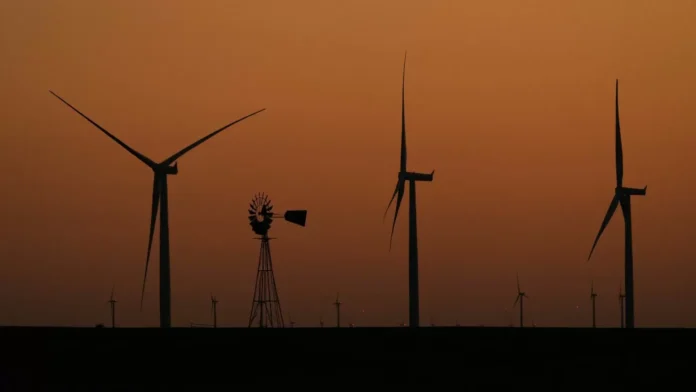The Senate’s megabill text has been updated and it has some major changes that will affect the renewable energy sector. The initial draft, released by Senate Republicans earlier this month, had proposed to cut tax incentives for wind and solar energy projects that did not “begin construction” by certain dates. However, the latest draft has gone a step further by not only slashing these incentives but also adding a new tax on future wind and solar projects.
This move has caused quite a stir in the renewable energy industry, with many experts and advocates expressing their concerns and disappointment. The tax incentives for wind and solar energy have been crucial in promoting the growth of these industries and reducing our reliance on fossil fuels. Cutting them would not only hinder the progress of renewable energy but also have a negative impact on the environment.
The initial draft of the Senate’s megabill had proposed to cut the production tax credit (PTC) for wind energy by 40% and the investment tax credit (ITC) for solar energy by 20%. These tax credits have been instrumental in making wind and solar energy more competitive with traditional sources of energy. By cutting them, the Senate was sending a message that it does not prioritize the transition to clean energy.
However, the latest draft goes even further by adding a new tax on future wind and solar projects. This tax would be imposed on projects that start construction after 2022 and would gradually increase over the years. This means that not only would the tax incentives be reduced for current projects, but future projects would also have to bear an additional burden of this new tax.
The justification behind these changes is to generate revenue for the government and reduce the budget deficit. However, it is important to note that renewable energy has been one of the fastest-growing sectors in the US economy, creating jobs and boosting economic growth. By discouraging investment in this sector, the Senate’s megabill could have a detrimental effect on the economy in the long run.
Moreover, these changes also send a negative signal to the rest of the world. The US has been a leader in the fight against climate change and has committed to reducing its greenhouse gas emissions. By cutting tax incentives and imposing new taxes on renewable energy, the US is taking a step back from its commitment and could potentially lose its credibility on the global stage.
The renewable energy industry has been a bright spot in the US economy, with over 3 million jobs created in this sector. These changes proposed by the Senate could put these jobs at risk and slow down the growth of this industry. It is important to note that the renewable energy sector has been one of the few industries that have continued to grow during the pandemic, providing much-needed stability and job opportunities.
In addition, these changes could also have an impact on the US’s energy security. By relying heavily on fossil fuels, the US is vulnerable to fluctuations in oil prices and geopolitical tensions. Investing in renewable energy would not only reduce our dependence on foreign oil but also make our energy supply more resilient and sustainable.
The Senate’s megabill is still in the draft stage and there is still time to make changes. It is important for lawmakers to understand the importance of renewable energy and the impact these changes could have on the industry. Instead of cutting tax incentives and imposing new taxes, the government should be looking for ways to further support and promote renewable energy.
In conclusion, the updated draft of the Senate’s megabill has proposed significant changes that could have a negative impact on the renewable energy sector. Slashing tax incentives and imposing new taxes would hinder the growth of this industry and have a ripple effect on the economy and the environment. It is important for lawmakers to reconsider these changes and prioritize the transition to clean energy for the betterment of our economy and the planet.

